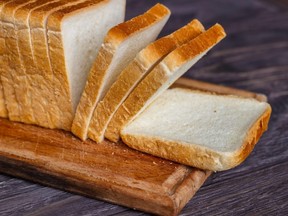
Article content
The proposed grocery code of conduct has sparked debate regarding its efficacy in stabilizing prices in Canada, and justifiably so. The public lacks detailed knowledge about this code, and many fail to recognize the considerable influence that major players like Loblaw and Walmart exert on the food industry.
Advertisement 2
Article content
This issue gains relevance against the backdrop of rising food prices and concerns about affordability in Canada, reminiscent of the era marked by the notorious “bread cartel.”
Article content
The bread price-fixing scheme, which allegedly persisted from 2001 to 2015, significantly angered Canadians. It only came to light in 2017 when Loblaw and Weston Bakeries — owned by Loblaw at the time — admitted their involvement in this scheme lasting more than a decade. Despite the scandal, the story quickly receded from public attention after Loblaw offered a $25 gift card to Canadians. However, the lingering high food prices reignited criticism and distrust toward the company, with the investigation still unresolved after nine years. Nine years!
Article content
Advertisement 3
Article content
Remarkably, no executives were prosecuted, although Grupo Bimbo, which acquired Canada Bread from Maple Leaf Foods in 2014, paid a record-setting $50-million fine. Along with Loblaw and Weston Bakeries, Canada Bread also admitted participation in the cartel. Meanwhile, other grocers, including Walmart Canada — which has yet to endorse the code of conduct — remain under investigation. The ongoing legal disputes and accusations of defamation only add to the industry’s tainted image.
The root cause of the bread price-fixing scheme appears to be a drive to increase profit margins without resorting to innovation or market expansion. Essentially, these parties chose to manipulate market conditions rather than introduce new products or ideas.
Advertisement 4
Article content
A previous report by the Agri-Food Analytics Lab at Dalhousie University suggested that such a cartel was feasible given the behaviour of food prices, particularly between 2015 and 2017. The scheme would not have been possible without the involvement of Loblaw and Weston Bakeries, who wielded considerable control and power through vertical integration. Canada Bread was coerced into joining the cartel, costing Canadians an estimated billion dollars in extra bread costs over 14 years. One billion dollars.
While private companies generally operate freely within the law, the involvement of some in unlawful activities has lasted for years. The proposed code of conduct aims to foster innovation, facilitate market entry for new players, and enhance competition in various food categories, including bakery. It would also make coordinating illegal schemes more challenging by increasing oversight.
Moreover, the code would enhance transparency in vertical coordination, as reports detailing company behaviours would be publicly accessible. Though skepticism about the code’s effectiveness is understandable, a deeper understanding of supply chain dynamics reveals that it could significantly reduce the temptation for illegal price fixing and shift the focus toward innovation and competition.
Article content



